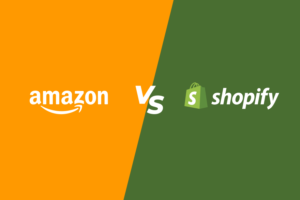E-commerce
At Open Desq, we’re all about making things simpler for businesses, and e-commerce is a big part of that. We’re a business development consulting company that helps organizations across various industries grow and streamline their operations. Whether it’s setting up an online store, helping with marketing strategies, or optimizing customer experiences, we’re here to guide businesses through the digital landscape.
With more people shopping online than ever, e-commerce has become a massive part of today’s economy. It’s not just about selling products; it’s about building an online presence that lasts. Open Desq focuses on delivering customized solutions that fit the needs of businesses, big or small, without drowning them in technical jargon or complicated processes. We believe that e-commerce should be accessible and understandable for everyone, and we’re here to make sure that’s the case.
Amazon- The Giant of E-Commerce:
When it comes to e-commerce, Amazon is the name that often springs to mind. Launched in 1994 as an online bookstore, it has grown into a global marketplace that sells everything from electronics to groceries. Amazon’s success can be attributed to its vast selection, competitive pricing, and customer-centric approach. With millions of sellers and a wide variety of products, it’s no wonder that consumers flock to Amazon for their shopping needs.
One of the standout features of Amazon is its Prime membership. This service offers fast shipping, exclusive deals, and access to streaming services, making it a popular choice among consumers. For sellers, Amazon provides an opportunity to reach millions of potential customers, which can significantly boost sales. However, entering the Amazon marketplace is not without challenges, including competition and fees that can eat into profits.
Shopify- Empowering Entrepreneurs:
On the other side of the e-commerce spectrum is Shopify, a platform designed specifically for entrepreneurs looking to start their own online stores. Founded in 2006, Shopify allows users to create customizable online shops with ease. Its user-friendly interface and wide range of templates make it accessible for anyone, even those without technical skills.
One of Shopify’s key strengths is its flexibility. Users can choose from a variety of apps to enhance their store’s functionality, from payment gateways to inventory management. This means that businesses can mold their online presence to suit their specific needs. Additionally, Shopify offers robust analytics tools, helping entrepreneurs track their sales and customer behavior effectively.

Amazon vs. Shopify
When considering e-commerce options, many business owners find themselves torn between Amazon and Shopify. Each platform has its unique advantages and challenges, and the choice ultimately depends on the business model and goals.
Audience Reach:
Amazon provides immediate access to a massive audience, which is a huge advantage for sellers who want to hit the ground running. With millions of shoppers visiting the site daily, businesses can leverage Amazon’s existing customer base. In contrast, Shopify requires businesses to invest in marketing to drive traffic to their store. While this may take more time, it also allows for greater control over branding and customer relationships.
Control and Customization:
Shopify shines in terms of customization. Users can create a unique brand experience customized to their target audience, which is crucial for building loyalty. On the other hand, Amazon has strict guidelines regarding product listings and branding. Sellers have less control over how their products are presented, which can be limiting for those looking to establish a strong brand identity.
Fees and Profitability:
Fees are another significant consideration. Amazon charges various fees, including referral and fulfillment fees, which can add up quickly. Shopify, while it has its own fees, typically allows for more flexibility in managing costs. Users can choose from different pricing plans based on their business needs, making it easier to predict expenses.
Long-Term Growth:
For businesses focused on long-term growth and brand building, Shopify may be the better choice. It provides a solid foundation for creating a loyal customer base, as users can engage directly with their customers through their own website. In contrast, while Amazon offers short-term sales potential, it can be challenging to foster customer loyalty since shoppers often prioritize price and convenience over brand allegiance.

Our Take on the Said Topic
At Open Desq, we understand that the decision between Amazon and Shopify isn’t a straightforward one, and it’s certainly not a “one-size-fits-all” situation. Every business is unique, and so are its goals, resources, and the journey it’s on. Choosing the right e-commerce platform can feel like a daunting task, but we’re here to break it down in a way that aligns with your specific needs.
The first step in making the right decision is identifying what you’re aiming to achieve. Are you an entrepreneur eager to jump right in, gain instant visibility, and tap into an enormous global audience? If so, Amazon offers a quick and easy entry into the e-commerce world. With millions of daily visitors, you can immediately showcase your products to a massive customer base. However, this comes with the trade-off of competing with countless other sellers on price and product range.
On the other hand, if you’re building a business where your brand identity is at the heart of what you do, Shopify is the platform that can help you nurture those relationships and grow your presence. Shopify gives you the flexibility to create a store that reflects your brand’s voice, values, and aesthetic. This helps you stand out in a crowded market, offering more control over how customers experience your brand. You own the entire customer journey, from the first visit to follow-up communication, enabling you to foster loyalty and repeat business.
Another critical factor in making the decision between Amazon and Shopify is evaluating the resources you have at your disposal. Amazon provides an infrastructure that can be ideal for businesses without much technical or financial bandwidth. The platform handles warehousing, shipping, and customer service through its Fulfillment by Amazon (FBA) program, making it easier for you to focus on selling. This comes with certain fees, but it simplifies the operational side of things, which can be a big plus for businesses starting out.
Shopify, however, offers the advantage of long-term scalability. You have more control over your operations, from managing your own shipping processes to designing the shopping experience. But with this control comes responsibility. Building an online store on Shopify might require more initial investment in terms of time and effort, especially if you’re working on marketing, managing your inventory, or setting up your own logistics.
It’s crucial to ask yourself what your long-term vision is. Are you in this for a quick profit, or are you laying the foundation for a lasting business? Amazon can be great for fast results, but it often focuses on short-term gains. While selling on Amazon gets your products in front of people quickly, it’s harder to build a lasting relationship with customers. Shoppers on Amazon are generally looking for the best deal, and brand loyalty can take a backseat to convenience and pricing.
With Shopify, you’re in a better position to create a distinctive brand identity. The platform’s customization options allow you to craft an experience that resonates with your customers, ensuring they come back for more. Shopify offers a range of tools to help you engage directly with your audience, from personalized email marketing campaigns to loyalty programs. This kind of connection not only helps drive repeat business but also supports the long-term growth of your brand.
One option that we at Open Desq often recommend is not limiting yourself to just one platform. Many businesses find success by combining the strengths of both Amazon and Shopify. By selling on Amazon, you can take advantage of its massive customer base for quick wins, while using Shopify to build a personalized brand experience and foster deeper relationships with your customers.
This hybrid approach can provide the best of both worlds. For example, you can list popular, high-volume products on Amazon to tap into a wide audience, while maintaining a curated selection on your Shopify store for loyal customers who value your brand’s unique identity. This way, you’re not putting all your eggs in one basket and can spread out your risk across multiple sales channels.
Diversifying your e-commerce strategy by utilizing both platforms allows you to adapt to changing market conditions more flexibly. If Amazon’s fees or competitive nature become challenging, your Shopify store offers a more stable, controlled environment where you can engage customers on your terms. Similarly, if your Shopify store takes time to gain traction, Amazon can serve as a lifeline to ensure steady sales in the meantime.

Final Thoughts:
At Open Desq, we believe that making informed decisions is key to long-term success. The choice between Amazon and Shopify is not about choosing the “better” platform but about choosing the one that fits your business goals, resources, and vision for the future. Whether you prioritize quick access to a large customer base or aim to build a personalized brand experience, understanding the strengths and weaknesses of each platform will help you set a clear path forward.
We also see immense value in blending the advantages of both Amazon and Shopify. By balancing the reach of Amazon with the customization and control of Shopify, you can maximize your e-commerce potential. Remember, no decision is permanent. Your e-commerce journey can evolve as your business grows, and that’s where we come in—to guide you through each phase with strategies that work for your specific needs.
We’re always here to help you navigate the complexities of the e-commerce world, ensuring that your decisions aren’t just informed but also aligned with your business goals.
